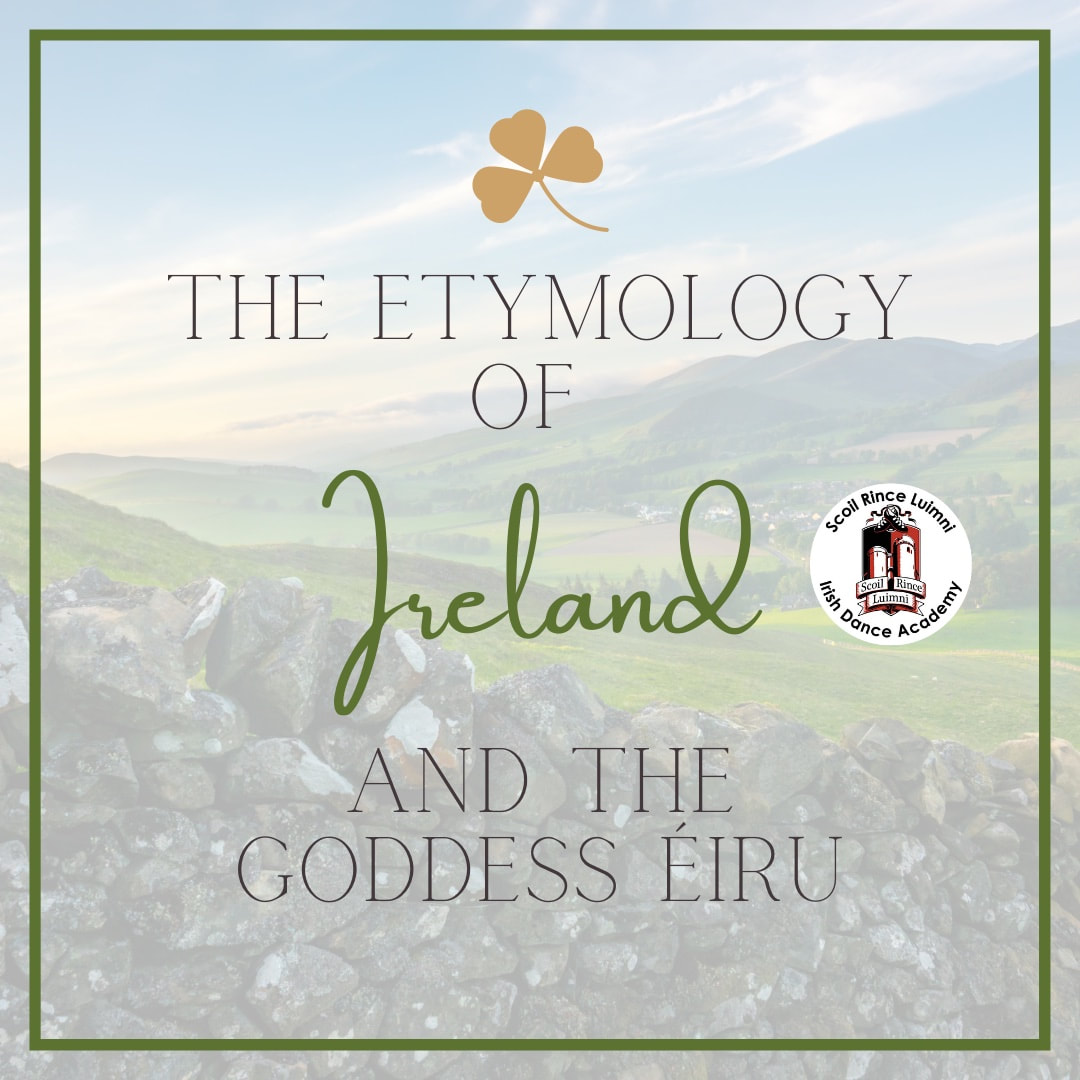|
The Goddess Ériu and the Etymology of Ireland Etymology, the study of the origin and development of words, is a tricky beast—some words we still use today predate written language and none so much as in a place like Ireland, with such a strong oral tradition. Tracking down the true source of words in the Irish language can be a bit of a wild goose chase, except on the off chance there’s a story behind it. March is indisputably the month of Ireland, especially at an Irish dance school, so today we’re diving into why Ireland’s called Ireland—a myth as old as any on the island, as it refers to the mother of the land itself. The name for Ireland in Irish is Éire, a word meaning “bountiful,” “plentiful,” and “abundant,” which is derived from the name Ériu (and its anglicized version—Erin)—a goddess in ancient, Irish mythology. First described in print in the 11th century text The Book of the Taking of Ireland (i.e. Lebor Gabála Érenn,) Éiru is known as a sovereignty goddess, representing the country and the land itself in the form of a woman. Together with her two sisters, the lesser known Banba and Fódla (aka a trinity, a symbol strongly connected with Irish culture,) this triumvirate of goddesses were known by a number of epithets: the fair women, a famous throng, the clear voice of achievement, and the bright women of spirited speech. But why is the island named after Ériu? Legend tells us that when the Milesians invaded Ireland, Éiru and her sisters, members and rulers of the race of the god-like Tuatha Dé Danann, stood against the colonizers, demanding they leave. When the tides began to turn against the Tuatha in the battle for their land, Éiru and her sisters each took the high ground on top of their favorite hilltops to concede to the invaders, on one condition: that the land be named after them so their names would be remembered. The Milesians—Gaels who traveled through Spain in order to reach their new home, ancestors of those we consider Irish today—agreed, but as Éiru was standing on top of the sacred peak of Uisneach, hers became the main name used (though Banba and Fódla remain poetic terms for Ireland.) Over time, Éiru has become a personification of Ireland, appearing in innumerable nationalist poems and songs into the modern era. Using the concept of Ireland as a woman, often weeping and emotive over the state of the country, has been used for years as a way to stoke the fire in the hearts of Irish patriots. One of the best known pieces of literature that uses this trope is William Dreannan’s 1884 poem “When Erin First Rose,” which is also considered the text that first called Ireland “the Emerald Isle”: When Erin first rose from the dark swelling flood,
God bless’d the green island and saw it was good; The em’rald of Europe, it sparkled and shone, In the ring of the world the most precious stone. Of course, we know it even better in slogan form, as in: Erin Go Bragh! The anglicization of Éire go Brách, meaning literally “Ireland till the end of all time,” this rallying cry stems from the Irish rebellion of 1798. (Though it’s still often used today as the motto of Irish athletics clubs, politics parties, and even war battalions with Irish members in other countries, as a song or poem title, and generally to expressed Irish national pride.) One more fun fact? If you remove the accent from the e (i.e. “eire” instead of “Éire,”) the name of the country transforms into Irish word for burden—a fact that, with Ireland’s complex political history, must get a chuckle out of the Irish. Erin Go Bragh and praise Éiru! This post is part of a series. Read our last folklore post, all about Irish winter superstitions, here. Check out the blog every Monday and Thursday for more posts about Irish history, dance culture, community news, and spotlights on our dancers, staff, and families—among other fun projects! And don’t forget to dance along with us on both Facebook and Instagram.
0 Comments
Your comment will be posted after it is approved.
Leave a Reply. |
SRL NewsFind all of our latest news on our Scoil Rince Luimni Facebook page! Categories
All
Archives
August 2022
|

 RSS Feed
RSS Feed